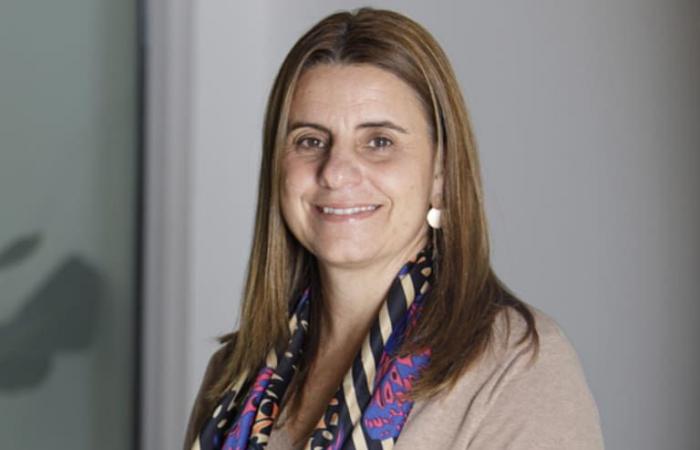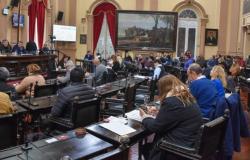Hear
“I worked for 20 years in the hotel industry and, suddenly, I made a 180-degree change in search of learning about new industries and launched myself into the agricultural industry, which I knew absolutely nothing about.” Agustina Veiga He shares his story, which in each story or reflection on his experience demonstrates his taste for challenges, the search for generating changes and transformations. Something he recently tried again. After seven years of experience in the sector, which she claims to have become immersed in and fallen in love with, she took on a new challenge: she was elected to preside over the Chamber of Agricultural Health and Fertilizers (Casafe), which brings together the phytosanitary industry.
“As I am not an agricultural engineer, I do not have the technical knowledge that my peers from the company where I work (UPL) or other companies may have. However, it seems to me that collaborative and networked work is what our country and society needs today. Different views and experiences in pursuit of finding solutions to common problems,” she told THE NATION.
In that sense, he indicated that his “focus” during his more than 25 years of work was always on building teams and working to generate changes. Something that was reflected in his first years in the hotel industry, where he was working in human resources areas.. “I like to generate changes in relationship models and business models. “I am addicted to generating long-term bonds and active listening,” he commented.
From the chamber, where she is the first woman to preside, she was presented as someone who has more than 20 years of experience in developing and managing people with a focus on implementing the necessary changes in organizations to carry out different business models. . “His experience and strategic vision have been fundamental for the development of projects that promote collaborative work based on the detection of shared pain points,” she reported.
Veiga has an outstanding career at UPL, a company he joined during his foray into the agricultural world. His first training was hospitality, and at the same time he was in business administration. “Every instance that life gives you is to learn something and be able to contribute”accurate.
“For me there are two things that are key to being prepared for what is coming: a constant attitude to learning. That is, one is in constant search of learning new things and the other is the famous feedbackwhich implies learning today to be prepared for what is coming and with the speed at which the world is moving today, perhaps what we have to learn is what is coming in two years,” he added.
His decision to get into agriculture was part of his rather “disruptive” side. He said: “I started looking for what might interest me and, although I was interested, I am not from a country family; “My dad loved the countryside and would have loved to work there, but life took him the other way.”
What attracted her to the sector was its “essence.” She maintained: “We don’t realize it, but the countryside is in our lives no matter where we are and the countryside is the base from which everything arises. For me it involves family, interior, cultivating the land, producing food. It’s hard not to love the countryside. Many times people face the field, but out of ignorance because false information or expectations are generated.”
Her father’s work took her to live in different areas of the country. She passed through Jujuy, Bahía Blanca, Junín, Azul. “I came to live in Buenos Aires to study, but every two or three years I moved from place to place”he expressed.
With his current challenge, Veiga sees the opportunity to leave his comfort zone and continue learning, collaborating with different institutions and sectors to promote sustainable agriculture. One of the challenges that she highlighted in his sector is communication, especially in a context where accusations are faced about the environmental impact of phytosanitary products.
“Companies are busy with the issue, but many times due to lack of communication or perhaps due to lack of active listening, not in all sectors, and being able to communicate, not by listening to each other, and that each one can, based on science, be able to demonstrate the information that each one handles. Sometimes, we end up as opposing sectors and here we do not have to confront each other, we have to work together,” he indicated. “Sometimes it seems impossible to think that companies that produce phytosanitary products are working with environmentalist companies, but it is something that happens and must be communicated,” he added.
“We all have to pursue sustainability; Just because we are companies that sell phytosanitary products does not mean that we do not care about sustainability. On the contrary, we are busy with the issue. For this reason, let’s say, the chamber is concerned with precisely that, with really promoting the use of good agricultural practices, using new technologies that respect the environment, so that we are socially responsible. Obviously, that we are economically viable,” he concluded.






